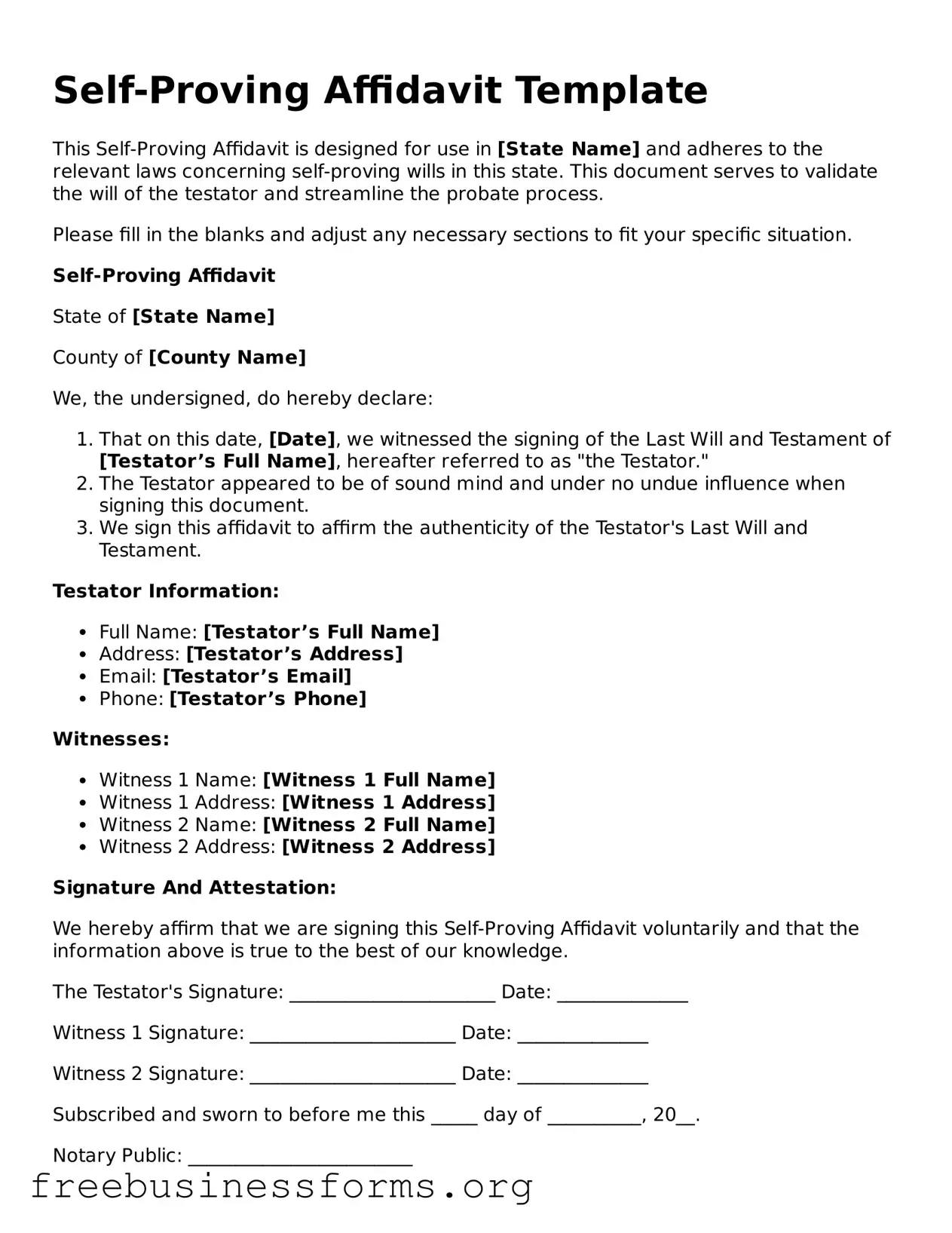Official Self-Proving Affidavit Form
A Self-Proving Affidavit is a legal document that helps simplify the probate process by confirming the validity of a will. This form allows the testator and witnesses to affirm that the will was signed in their presence, reducing the need for witnesses to testify in court. By using this affidavit, you can streamline the administration of your estate after your passing.
Open Form Here

Official Self-Proving Affidavit Form
Open Form Here

Open Form Here
or
↓ PDF File
Quickly complete this form online
Complete your Self-Proving Affidavit online quickly — edit, save, download.